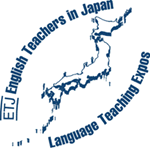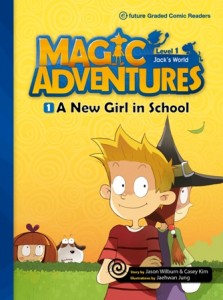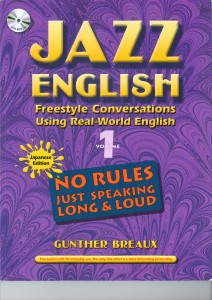curriculum evaluation expectations high school public policy teaching testing university
by sendaiben
17 comments
Japan to use TOEFL as university entrance hurdle?
You may have read about the Japanese government’s suggested plan to use TOEFL as a screening test for university entrance. If not, here are some online articles:
Japan Times (March 25) “Abe Wants TOEFL to be Key Exam”
Japan Times (March 25) “LDP urges TOEFL scores as college entrance, graduation requirement”
I am not an expert on the TOEFL test, and I am not privy to the details of this plan, such as what kind of scores they are planning to require, or how they expect high schools to prepare students for the TOEFL. However, I think this is a horrible idea.
I am really opposed to using tests out of context, for purposes other than the ones they were designed for. This applies especially to the TOEIC and TOEFL tests. As far as I am aware, TOEIC is a test designed to measure English proficiency within a working environment. Apart from the language, it also requires test-takers to have some idea of working environments and tasks. I find that young people with no experience of working in office or professional environments are at a real disadvantage taking the test -basically it is not designed for them.
I believe TOEFL is designed to measure how well candidates will deal with studying in an English-language institution. It is looking at whether they will be able to understand lectures, write papers, take notes, participate in discussions, etc.
Using these tests indiscriminately to measure general language proficiency or achievement is surely less than ideal.
I am opposed to using the TOEFL test to pre-screen candidates for university entrance, as suggested in the articles above, for the following reasons:
- The test is inappropriate to measure English achievement over the entire student population, as opposed to a select few who intend to study abroad
- Regular high schools are not in a position to prepare students for these tests, which means that students will have to go to the private sector if they want to go to university, which means that only relatively affluent students will be able to go to university
- The bar will have to be set so low on the TOEFL iBT in order for normal students to pass it as to render the whole thing meaningless
- A foreign company like ETS should not have this much influence on Japan’s national curriculum: giving it to them is an abdication of responsibility on the part of the Ministry of Education
- The test is expensive, and presumably most students will take it several times to try to maximize their score, adding 30-50,000 yen to the cost of applying to university
Basically this is the latest in a series of ‘reforms’ that start from a positive goal (improve students’ practical English abilities), then completely fail to implement steps to achieve that goal, due to lack of knowledge, political will, or sheer incompetence.
What do you think about this idea? Is it going to help Japanese students?
conference EFL eikaiwa elllo ETJ high school JHS junior high school language courses Language learning materials online resources oxford owl popjisyo presentations renshuu rikai self-study teaching technology TED university video
by sendaiben
leave a comment
Tohoku (Sendai) ETJ Expo -Sunday December 2 at Tohoku Bunka Gakuen University
I’ll be presenting at the ETJ Expo in Sendai this weekend, talking about useful online resources to help students study more effectively.
The schedule for the event is here, and the map/directions are here.
My workshop is at 12:30 -hope to see you there!
conference curriculum EFL eikaiwa elllo ES ETJ expectations extensive listening extensive reading high school Japanese junior high school Language learning online resources oxford owl Oxford Reading Tree phonics popjisyo presentations renshuu reviews rikai self-study teaching technology TED university video
by sendaiben
leave a comment
Annotated list of websites from the “SRS, RSS, LMS: Online Tools to Boost Learner Efficiency” presentations
Hi everyone
A friend from Sendai reminded me that I promised to post the list of websites from my presentation on the blog. Here it is:
Anki is a spaced-repetition program
elllo.org is an amazing listening resource: over 1200 short conversations with transcripts
EnglishCentral.com has short videos with interactive subtitles as well as vocab and pronunciation practice
Facebook needs no introduction
Google search settings have some interesting tools, like reading level
Google translate is partially useful
iTunesUniversity great content for advanced students and teachers can now use it to show their classes
Network (Oxford University Press textbook) new series based around social media
OxfordOwl incredible resources including Oxford Reading Tree ebooks with sound
pikifriends a closed social network for junior high schools
popjisyo.com amazing resource for reading online content
readthekanji.com a simple (paid) system for learning kanji
renshuu.org a very powerful site for learning kanji and vocabulary -freemium but most of it is free
rikaikun for Chrome/rikaichan browser extension Firefox gives popup translations within the browser
skype for video calls
starfall.com phonics and reading practice for children
TED.com great content for teachers and advanced learners
youtube.com you know this
Hope you find something useful in there.
e-future Graded Comic Readers EFL ES extensive reading high school junior high school kids materials readers Reading reviews
by sendaiben
25 comments
e-future Graded Comic Readers: Magic Adventures
I just received my order of a full set of e-future Graded Comic Readers (Magic Adventures) and am, so far, extremely impressed.
The series consists of 18 comic books over three levels (200, 400, and 600 headwords). The story starts off in our world, then goes into Magic Land, then comes back to the real world. The characters are children and it has a real Harry Potter kind of vibe to it. The artwork is very nice, and the production values are high. They also have exercises and a glossary in the back.
Each book has a CD (not mp3 thankfully) with various tracks: theme song, the story, listen and read, listen and repeat, key words and expressions, then a great one: read the story using prompts, making them ideal for homework or self-study.
The books are comics, so feel very fresh. The students I tried them with today (elementary and junior high school) really liked them and so did I.
This is my find of the week: great, fresh, reading material at a reasonable price (set of 18 is just over 13,000 yen before discounts).
EFL eikaiwa high school junior high school Language learning materials reviews speaking teaching textbooks university
by sendaiben
5 comments
Jazz English
Published by Compass, Jazz English is a speaking textbook for lower-intermediate students. It works very well with junior high school students that have been studying for a while and are ready to take things to the next level in terms of speaking, as well as with high school and I imagine lower level university students. I have only used the first textbook, so this review does not address Jazz English 2, nor the companion workbook (which I am going to try soon).
The textbook consists of ten main units and three supplementary ones, with all units following the same pattern: new vocabulary, conversation prompt questions, a dialogue, a short reading section, a crossword to practice the vocabulary, a short reading task, exercises to support speaking, and a final speaking activity.
The focus of the book is for students to develop more autonomy while speaking, and to try to have longer and more complex conversations. It does this very well, at least in my experience, with students that have a solid base of vocabulary and English exposure, and who are motivated to improve their conversational skills. Our ‘advanced’ classes, consisting of junior high and high school students that have been studying for four or more years took to it very well.
This has been a real find for us this year, and I wholeheartedly recommend it for classes similar to the one described above. The course requires a lot of student input, so this book would not work well with unmotivated or reluctant learners.
Anybody else using Jazz English?




